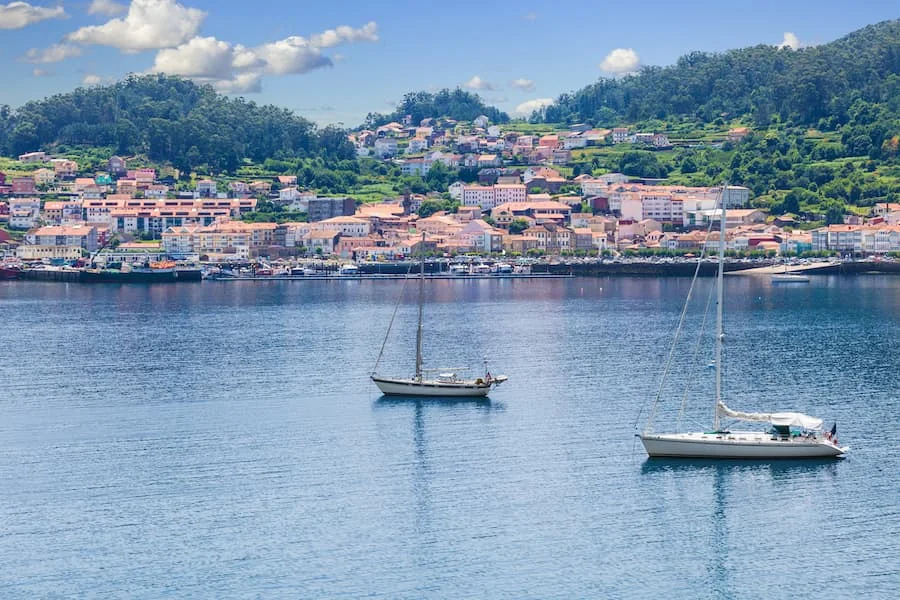Costa da Morte - Death Coast. Scary name, isn't it? But most of the western coast of Spain bears this name. And legally and officially. You can even see the inscription "Costa da Morte" on road signs.
 |
| Costa da Morte Spain |
There are many legends and versions on which such a nickname for the coast is based. I will consider three, one of which is frightening in its sophistication.
Graveyard of ships under the ocean surface
The very first thing that comes to mind when mentioning the Costa da Morte is that it is destructive to ships and ships. This is considered one of the versions of the origin of the name.
Underwater rocks, sharp reefs, wind, fog, rains, turbulent ocean in these places actually took thousands of lives and forever buried dozens (if not hundreds) of ships and boats under water.
At the lighthouse of Cabo Vilán there are information boards where ships that died in the local waters are marked. Even submarines can be found in the schematic drawings.
 |
| Costa da Morte Spain |
End of the kingdom of the living
The ancient inhabitants of these shores (in particular, the Celts lived in Galicia) believed that it was here that the End of the World was located. So what? The earth is ending, what's next is unknown. One of the capes of the Costa da Morte is even named after this.
The Latin Finis terrae (end of the earth) developed into modern Finisterre. The people who inhabited Galicia many centuries ago believed that only the kingdom of the Dead extended beyond this end of the earth. From here, they say, the roots of the modern name of the coast come.
 |
| Costa da Morte Spain |
Sophisticated Methods
Well, the third legend boils down to the fact that in bad weather the locals took their cattle to the shores, to the horns of which they hung lanterns with a candle inside.
Animals roamed the capes, and the sailors on the ships, who were caught by bad weather at sea, believing that these were the lights of the ships hiding in quiet and calm bays, hurried to the light to also take cover.
Here they ran into reefs, and the treacherous inhabitants of the surrounding villages, when there was a lull, engaged in a banal robbery, not sparing those in distress.
They didn’t get so much, because the bad weather managed to scatter the good and carry some into the ocean. But something allegedly fell to the local residents and they continued to deceive the sailors.